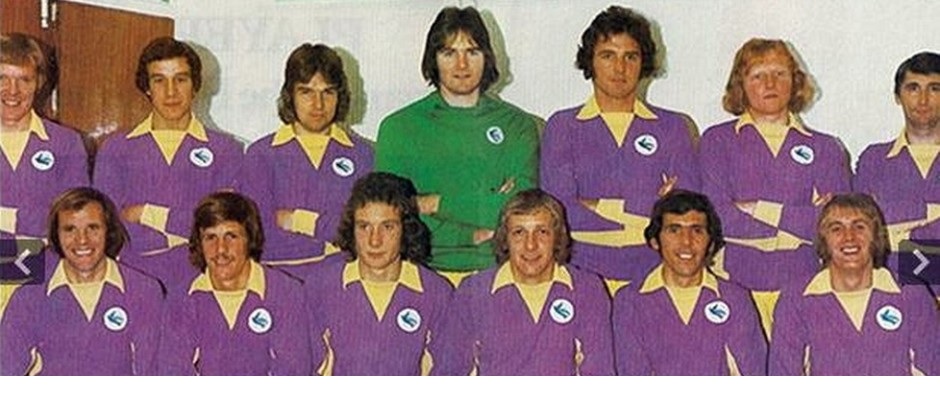
After the euphoria of Saturday’s derby win, Cardiff City move into a week which sees them play very important games. Derby, who we entertain on Saturday, are now only above us on goal difference, while our trip to Millwall tomorrow sees us come up against a team that had been considered top six candidates for a while and then safe in mid table after a slight downturn in results. However, five league matches without a win means they’re now in a position whereby, if we were to beat them, we’d pull level on points with them, albeit having played a game more.
Millwall exemplify the 24/25 Championship as it suffers from a decline in the number of goals being scored – their twenty six matches have seen them score twenty four times, while also conceding that number.
Less than a goal a game at either end of the pitch then in a division where it seems to me that what we used to call wingers are now expected to put in a full shift – indeed, at some clubs, the poor so and so’s playing out wide are expected to do both the full back and winger jobs to a standard which would seem them selected in either position in a side playing a kind of hybrid 4-4-2/4-2-4 formation.
City’s total of twenty nine goals scored in twenty seven games is hardly earth shattering, but, it’s better than six other sides in the division and, when you consider that we only scored once in our first half a dozen games, you can at least say we’re moving in the right direction. Indeed, we’re now in a position where we’ve only scored two less than third and fifth placed respectively Burnley and Blackburn, but the fact that the first named are only conceding goals at the exact rate of one every three games points you in the direction of this season’s evidence that scoring goals against the teams in the upper echelons of the second tier is just about as hard as it’s ever been.
Hardly surprisingly, Burnley’s nine is the lowest number of goals conceded, but all of the top six are letting in less than a goal a game and there’s also Millwall to join them, so, more than a quarter of the Championship are not conceding an average of one a game or worse.
Only four sides have conceded more than out forty one (the current bottom three and, surprisingly, tenth placed Sheffield Wednesday). Therefore, Millwall will probably be eyeing the game up as a chance to get their goalscoring up to that goal a game rate and, after a long time where games between us and them were seen as banker draws, recent history has favoured the home side, but, given both team’s recent results, it would be a real disappointment if we could not keep our unbeaten run going a while longer.
Anyway, here’s the usual seven questions on our opponents with the answers to be posted on here on Wednesday.
60s. With a name that has strong Cardiff City connections, there wasn’t a great deal in this forward’s career at his first two clubs to suggest that he would turn into the success he was at the Den. Starting off with a club from a county on the border with Wales, he only played ten league games for them, but still managed to set a club record which still stands as at the time when his Wikipedia entry was written and it was on the basis of youthful promise that a then First Division side signed him when he became eligible for his first professional contract. His move saw him further away from the Welsh border, but still pretty close to it. He played some first team football for his new team during his two years with them, but an injury didn’t help his cause and he eventually chose to drop down the leagues to join Millwall. Over the next five years, he scored at a very handy rate for his new team of about fifteen league goals a season, before relegation and the need to cut costs saw him being released and he then moved to a country which would become a sporting pariah to continue his career, eventually settling there for the rest of his life – who am I describing?
70s. A fine career was predicted for this midfielder, but he never really lived up to his youthful promise and, instead, enjoyed what was a perfectly respectable career which saw him staying close to his south London/Kentish roots throughout, apart from a short time in America playing for one of that country’s more famous sides at that time. Indeed, he kept on playing for non league clubs close to his birthplace until he was forty. He started with Millwall and was in their first team at seventeen, before moving to America in his early twenties. When he returned, it was to London as he had a season keeping fit, before venturing out of the capital to play in blue again. He played most games and scored most goals for this new club before he stayed in blue with a return to Millwall, although this time he was out of the team more than in it and his release after three years saw him begin his long non league career. Who is he?
80s. Wrestle with timetable for physical education lessons initially to produce Millwall player from this decade (5,5).
90s. Pair of body parts prattle on by the sound of it.
00s. Still turning out for a non league club whose exploits you can follow on You Tube every week, this defender will be forty in April and has had four spells with Millwall, who is he?
10s. Which Millwall player of this decade, who has been in England throughout his career, , played his first senior game of full time professional football at the age of twenty six and is still playing in the EFL today with more than three hundred and fifty appearances in the competition behind him?
20s. Having given you a helping hand in the preamble to this quiz, can you tell me how many goals have been scored in Millwall’s last twenty four league games?
Answers.
60s. David Jones became Crewe’s youngest ever scorer before Birmingham stepped in to sign him when he became old enough to have a professional contract. Jones moved to South Africa upon his release by Millwall in 1964.
70s.Dave Mehmet was born in Camberwell and signed for Millwall as a teenager before moving to Tampa Bay Rowdies. His return to the UK saw him playing for Charlton for a season and then Gillingham before a return to Millwall.
80s. Peter Wells.
90s. Tony Witter.
00s. Tony Craig, who currently plays for Dorking Wanderers.
10s. Lee Gregory, currently with Mansfield Town, played only non league football until Millwall signed him in 2014 at the age of 26.
20s. Incredibly, given how the rest of their season has gone, Millwall’s first two league games of this season were lost by 3-2 and 4-3. So, since then, Millwall have scored nineteen times and conceded seventeen meaning that their last two dozen EFL matches have seen a paltry thirty six goals scored.



